Awards ruined by termites, house in disarray and a museum yet to take shape: The sad legacy of Ustad Bismillah Khan
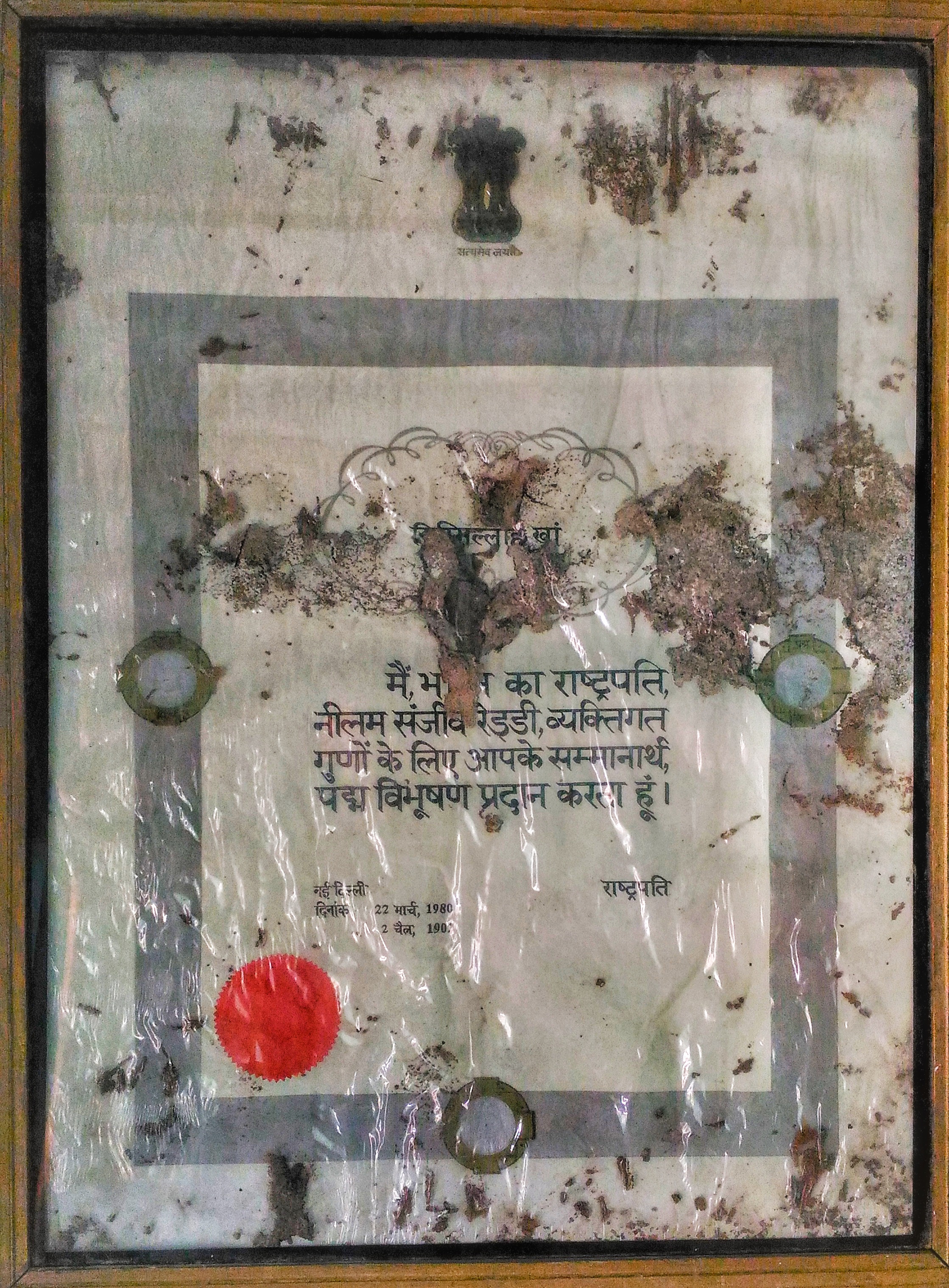
By Siddhant Mohan, TwoCircles.net
Two days after his death anniversary, the house of Shehnai maestro Ustad Bismillah Khan looks like a deserted amusement park from where the rides and swings have just been pulled off. Be it a media personnel or a businessman or any administrative official, no one visits this house in a closed Hadha Sarai locality, where the Ustad spent his whole life.
At any point in the day, the sound of someone blowing into the Shehnai comes from the big courtyard of the house. As we enter the house, Akbar Hussain was immersed in his daily practice. Akbar Hussain has taken the charge to teach the grandsons of Ustad Bismillah Khan, but never talks to the media.
[caption id="attachment_415672" align="aligncenter" width="2048"]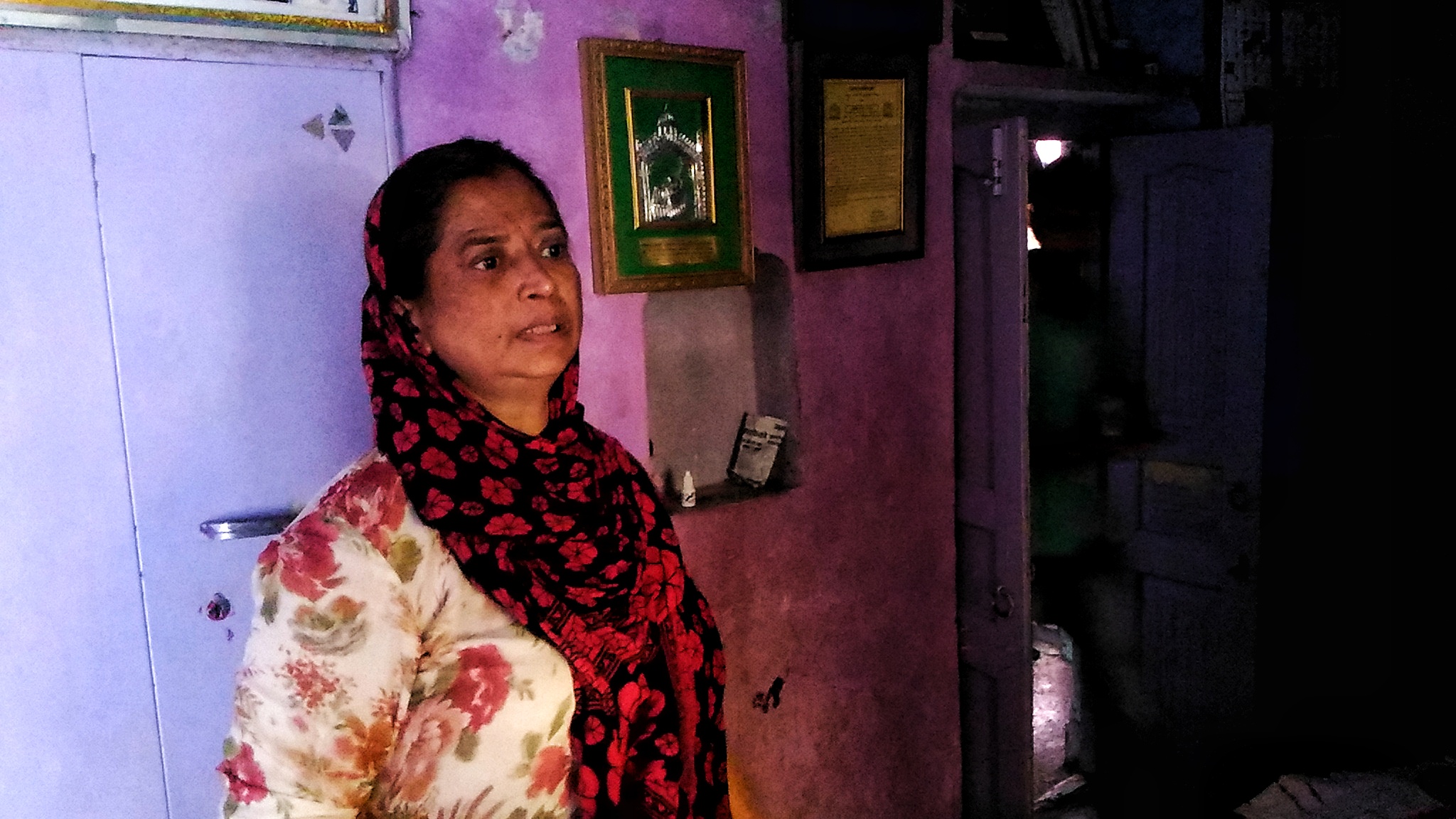 Bismillah Khan's granddaughter.[/caption]
Bismillah Khan's granddaughter.[/caption]
Aziz Fatima, Ustad's granddaughter, explains the situation, "People come here for only two days in a year. One on his birth anniversary, and second on his death anniversary. Rest of the times, no one bothers to look how the legacy of a Bharat Ratna awardee is dying."
And the statement of Fatima is not an exaggeration. A look around the house is ample proof. The drawing room or 'Baithak' looks dark even during the day. The room's wall is filled with pictures and paintings of Ustad Bismillah Khan. In the corner lies the bed where Ustad used to spend his days meeting people every day. The house is situated close to the famous Vishwanath Temple of Varanasi.
Abbas, grandson of Ustad recalls, “People who used to come here to worship at the Vishwanath temple would always come to our house to meet Ustad. Now we have visitors only two days a year.”
The main profession by which Ustad family earns an income is through Shehnai playing. Every male member of the house is involved in Shehnai playing. But few members are now involved in doing other businesses. Abbas says, “These days we don’t get the invitation to perform somewhere. Whenever I go out, people always ask me to do a side job along with Shehnai playing. They offer me help because of Dada Ji, but he is the same reason for which I don’t do anything else besides paying Shehnai.”
[caption id="attachment_415673" align="aligncenter" width="4096"]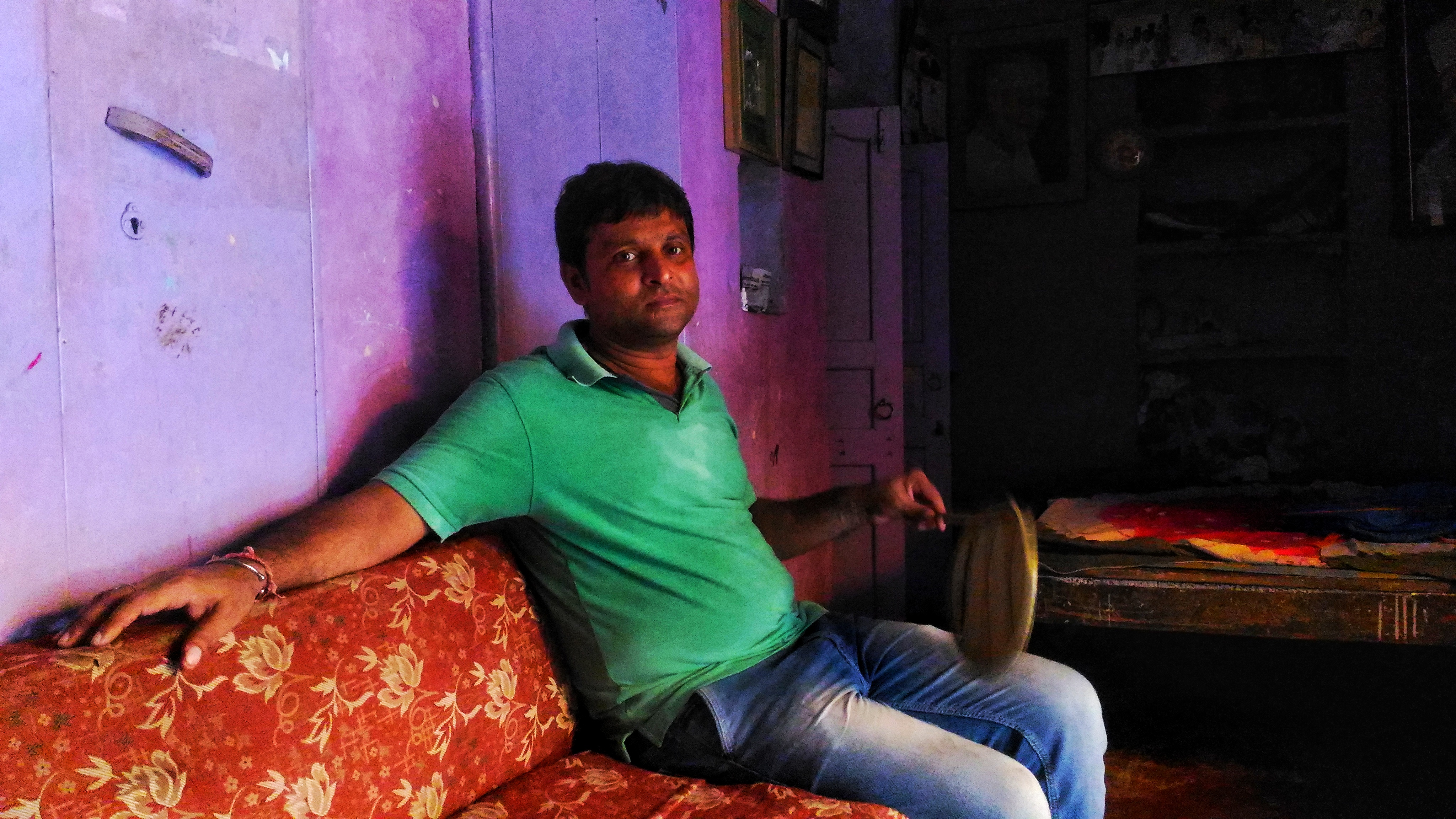 Bismillah Khan's grandson Abbas[/caption]
Bismillah Khan's grandson Abbas[/caption]
But playing Shehnai is not enough for a family of 35 people to survive. Abbas recalls, “In glory days of Dada, we had a family of 250 people living under the same roof. And everyone was eating and living with the earnings of Dada’s performance.”
But now, the Ustad’s family does not get enough calls for performances. Most of the calls are from the families who still follow the dying tradition of Shehnai playing in their wedding ceremonies. It has been quite a time since the family has received any call for a stage performance, and since 2014 there has been no call from the Central government as well.
Ustad might have sensed the incoming problems, which is why he himself asked for a petrol pump license. Moreover, he also asked for a license for an LPG gas agency but got neither of them. Ustad did not ask for these licenses for himself, but for his son and his grandson to ensure that the family continued to live well. It is also a fact that many organisations awarded cash prizes to Ustad Bismillah Khan just after he was awarded Bharat Ratna in 2001, but the money is not accounted anywhere in the family.
The wall of Ustad’s baithak feels and smells moist, which is a welcome invitation for termites. No wonder then, that his Padma Shree Certificate, presented to him by the then president Neelam Sanjiv Reddy has been eaten by termites, which have also the framing of his Padma Bhushan, Padma Shree, and Bharat Ratna certificates.
[caption id="attachment_415674" align="aligncenter" width="2048"]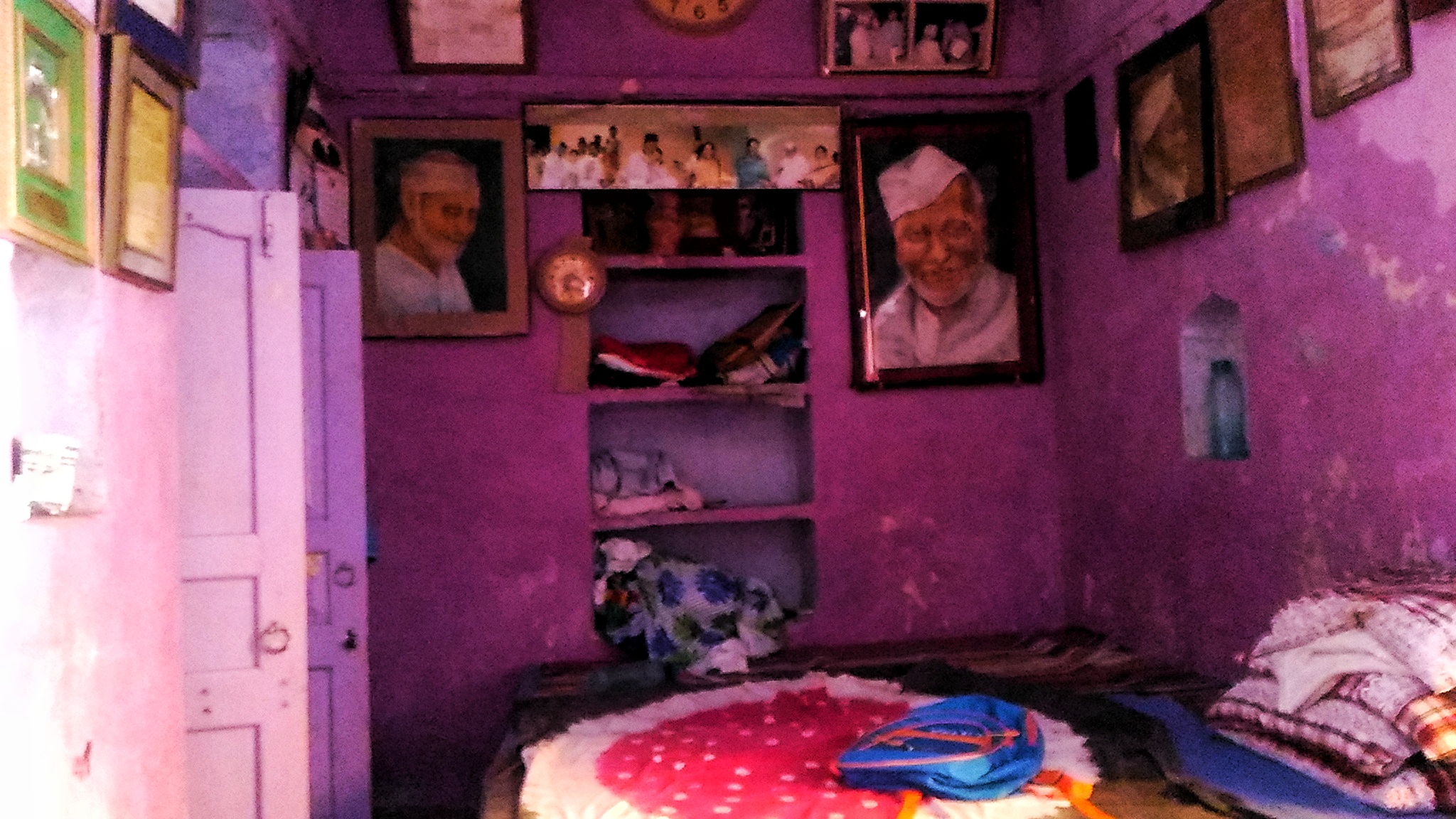 rawing room of Ustad Bismillah Khan[/caption]
rawing room of Ustad Bismillah Khan[/caption]
The matter came into the light on August 21 this year, when people visited the house of Ustad on his death anniversary. The family has now pulled down the certificates from the drawing room and shifted them into the Ustad’s own room situated upstairs.
Ustad’s Room? Museum? No one knows
There is a small room situated on the roof of the house where once a family of 250 people lived. Room’s latch is broken, and door’s frame waves even with a finger push. Abbas opens the room without opening the lock.
In the room, you see a cot with sticks on its edges to tie a mosquito trap, two footwears of Ustad, a set of utensils, pencils, erasers and a torch, a pillow and few clothes of Ustad. The room is filled with Ustad’s paintings and his private belongings including a portable urine pot, which he was using during his last days.
[caption id="attachment_415676" align="aligncenter" width="2238"] Bismillah Khan's Padma-Vibhushan eaten by termites.[/caption]
Bismillah Khan's Padma-Vibhushan eaten by termites.[/caption]
The family lives peacefully under one roof, but there is a tussle between grandchildren on what to do with Ustad belongings. Abbas mentions that central government had asked to declare this place as National Monument, but the decision is still pending as other kin has not given their permission yet. Abbas is willing to deliver Ustad’s belongings to a Museum, but Fatima, Abbas’s cousin, wants to renovate the house and turn it into a museum by themselves.
Fatima says, “Now if everything belongs to a museum, why not do it ourselves?” Fatima plans to convert the house to a big hall downstairs and change every corner to create a museum, a decision which many of the family members are not welcoming.
The Akhilesh Yadav government of Uttar Pradesh had awarded maestro’s son Mohammad Nazim Khan with Yash Bharti award. As per the award rules, Nazim Khan, the Tabla companion of Ustad, was to get a monthly stipend of Rs 50,000. But state government changed the March 2017, and soon the new chief minister Yogi Adityanath ordered the review of Yash Bharti award.
[caption id="attachment_415675" align="aligncenter" width="4096"]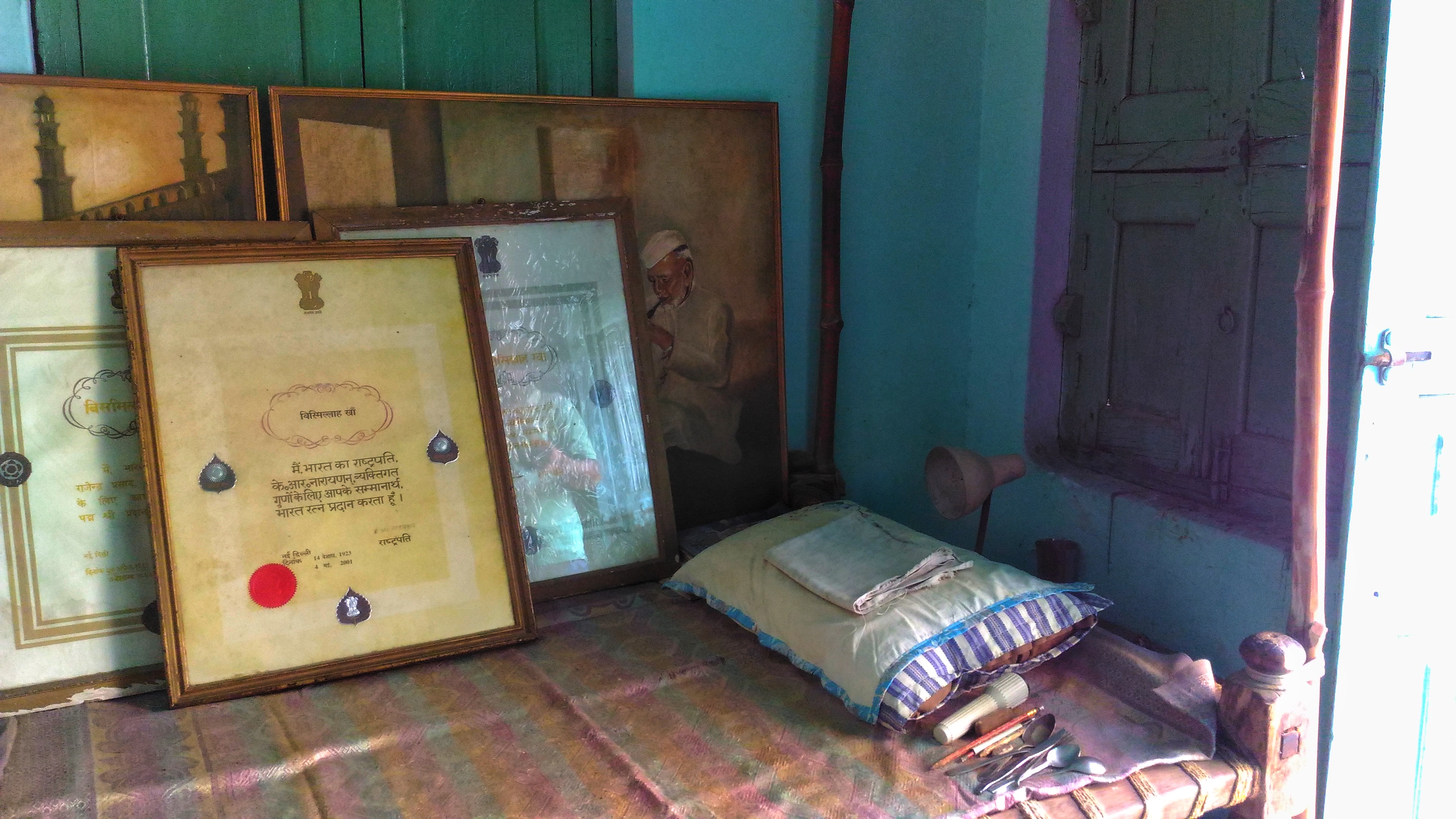 Bismillah Khan's room, bed and awards.[/caption]
Bismillah Khan's room, bed and awards.[/caption]
Abbas says, “If Nazim Saab would have been receiving the stipend, then our lives would have been easier. But he only received the first instalment which was given at the time of award.”
Not just the museum, the Maqbara (shrine) of Ustad also hangs in limbo due to the shortage of funds. The work on the Maqbara work started in 2012 and it stopped midway after all the funds were utilised. The family met the district magistrate of Varanasi. They got the assurance of work’s completion after the receiving of the funds.
Poet and dramatist Vyomesh Shukla has closely followed Ustad Bismillah Khan’s life and legacy and believes the blame does not lie only on the government. He said, “Before the government, it is the society which owes to Ustad’s family. Sadly, Shehnai is a dying instrument, and the people are not willing to revive the same. How should one survive playing Shehnai?”
But Shukla also adds, “Khan Sahab was the receiver of all the Padma awards and Bharat Ratna. It was the attention of Atal Bihari Vajpayee government who awarded Khan Sahab and Lata Mangeshkar with Bharat Ratna award. Keeping all things in mind, the government has to come forward to not to let these things die. The least they can do is to provide a monthly stipend to one of the family members.”
All the grandsons start their daily Shehnai practice at 6 am in the morning, which lasts until the afternoon. It is a practice to be ready for any call for a big concert, as Abbas tells, “Dada had a dream of playing at Lal Qila for one more time. He could not complete his dream, but we are praying and preparing every day for such a call from the government.”
The dire condition of the family’s financial condition can be understood as the fact that it was Ustad’s grandson Nazare Hassan who stole his priceless Shehnais from an old cupboard and sold them to a jeweller for a price of Rs 17,000. Hassan admitted that he stole the Shehnai to pay off his debt. Abbas says, “People believe that we have money, but who would do something like this if we had the money? And we don’t ask for money. We are artists, we want to perform. And we do not want ignorance of Ustad Bismillah Khan.”
